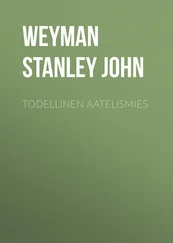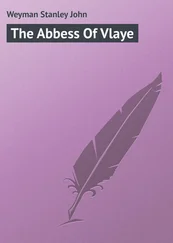Stanley Weyman - The Great House
Здесь есть возможность читать онлайн «Stanley Weyman - The Great House» — ознакомительный отрывок электронной книги совершенно бесплатно, а после прочтения отрывка купить полную версию. В некоторых случаях можно слушать аудио, скачать через торрент в формате fb2 и присутствует краткое содержание. Жанр: foreign_language, foreign_prose, на английском языке. Описание произведения, (предисловие) а так же отзывы посетителей доступны на портале библиотеки ЛибКат.
- Название:The Great House
- Автор:
- Жанр:
- Год:неизвестен
- ISBN:нет данных
- Рейтинг книги:4 / 5. Голосов: 1
-
Избранное:Добавить в избранное
- Отзывы:
-
Ваша оценка:
- 80
- 1
- 2
- 3
- 4
- 5
The Great House: краткое содержание, описание и аннотация
Предлагаем к чтению аннотацию, описание, краткое содержание или предисловие (зависит от того, что написал сам автор книги «The Great House»). Если вы не нашли необходимую информацию о книге — напишите в комментариях, мы постараемся отыскать её.
The Great House — читать онлайн ознакомительный отрывок
Ниже представлен текст книги, разбитый по страницам. Система сохранения места последней прочитанной страницы, позволяет с удобством читать онлайн бесплатно книгу «The Great House», без необходимости каждый раз заново искать на чём Вы остановились. Поставьте закладку, и сможете в любой момент перейти на страницу, на которой закончили чтение.
Интервал:
Закладка:
She said that she was very comfortable, and they were silent awhile, listening to the monotonous slapping of a rope against the mast and the wash of the waves as they surged past the beam. A single light at the end of the breakwater shone in the darkness behind them. She marked the light grow smaller and more distant, and her thoughts went back to the convent school, to her father, to the third-floor where for a time they had been together, to his care for her-feeble and inefficient, to his illness. And a lump rose in her throat, her hands gripped one another as she strove to hide her feelings. In her heart she whispered a farewell. She was turning her back on her father's grave. The last tendril which bound her to the old life was breaking.
The light vanished, and gradually the girl's reflections sought a new channel. They turned from the past to the present, and dwelt on the man beside her, who had not only thought of her comfort, who had not only saved her from some hours of loneliness, but had probably wrought this change in her life. This was the third time only that she had seen him. Once, some days after that memorable evening, he had called at the Hôtel Lambert, and her employer had sent for her. He had greeted her courteously in the Princess's presence, had asked her kindly if she had heard from England, and had led her to believe that she would hear. And she remembered with a blush that the Princess had looked from one to the other with a smile, and afterwards had had another manner for her.
Meanwhile the man wondered what she was thinking, and waited for her to give him the clue. But she was so long silent that his patience wore thin. It was not for this, it was not to sit silent beside her, that he had taken a night journey and secured these cosey seats.
"Well?" he said at last.
She turned to him, her eyes wet with tears. "It seems so strange," she murmured, "to be leaving all and going into a world in which I know no one."
"Except the head of your family."
"Except you! I suppose that I owe it to you that I am here?"
"I should be happy if I thought so," he replied, with careful reticence. "But we set a stone rolling, we do not know where it falls. You will soon learn-Basset will tell you, if I don't-that your uncle and I are not on good terms. Therefore it is unlikely that he was moved by what I said."
"But you said something?"
"If I did," he answered, smiling, "it was against the grain-who likes to put his finger between the door and the jamb? And let me caution you. Your uncle will not suffer meddling on my part, still less a reminder of it. Therefore, as you are going to owe all to him, you will do well to be silent about me."
She was sure that she owed all to him, and she might have said so, but at that moment the boat changed its course and the full force of the wind struck them. The salt spray whipped and stung their faces. Her cloak flew out like a balloon, her scarf pennon-wise, the tarpaulin flapped like some huge bird. He had to spring to the screen, to adjust it to the new course, to secure and tuck in her cloak-and all in haste, with exclamations and laughter, while Mary, sharing the joy of the struggle, and braced by the sting of the salt wind, felt her heart rise. How kind he was, and how strong. How he towered above ordinary men. How safe she felt in his care.
When they were settled anew, she asked him to tell her something about the Gatehouse.
"It's a lonely place," he said. "It is quite out of the world. I don't know, indeed, how you will exist after the life you have led."
"The life I have led!" she protested. "But that is absurd! Though you saw me in the Princess's salon, you know that my life had nothing in common with hers. I was downstairs no more than three or four times, and then merely to interpret. My life was spent between whitewashed walls, on bare floors. I slept in a room with twenty children, ate with forty-onion soup and thick tartines. The evening I saw you I wore shoes which the maid lent me. And with all that I was thankful, most thankful, to have such a refuge. The great people who met at the Princess's-"
"And who thought that they were making history!" he laughed. "Did you know that? Did you know that the Princess was looking to them to save the last morsel of Poland?"
"No," she said. "I did not know. I am very ignorant. But if I were a man, I should love to do things like that."
"I believe you would!" he replied. "Well, there are crusades in England. Only I fear that you will not be in the way of them."
"And I am not a princess! But tell me, please, what are they?"
"You will not be long before you come upon one," he replied, a hint of derision in his tone. "You will see a placard in the streets, ' Shall the people's bread be taxed? ' Not quite so romantic as the independence of Poland? But I can tell you that heads are quite as likely to be broken over it."
"Surely," she said, "there can be only one answer to that."
"Just so," he replied dryly. "But what is the answer? The land claims high prices that it may thrive; the towns claim cheap bread that they may live. Each says that the country depends upon it. 'England self-supporting!' says one. 'England the workshop of the world!' says the other."
"I begin to see."
"'The land is the strength of the country,' argues the squire. 'Down with monopoly,' cries the cotton lord. Then each arms himself with a sword lately forged and called 'Philanthropy,' and with that he searches for chinks in the other's armor. 'See how factories work the babes, drive the women underground, ruin the race,' shout the squires. 'Vote for the land and starvation wages,' shout the mill-owners."
"But does no one try to find the answer?" she asked timidly. "Try to find out what is best for the people?"
"Ah!" he rejoined, "if by the people you mean the lower classes, they cry, 'Give us not bread, but votes!' And the squires say that that is what the traders who have just got votes don't mean to give them; and so, to divert their attention, dangle cheap bread before their noses!"
Mary sighed. "I am afraid that I must give it up," she said. "I am so ignorant."
"Well," he replied thoughtfully. "Many are puzzled which side to take, and are waiting to see how the cat jumps. In the meantime every fence is placarded with 'Speed the Plough!' on one side, and 'The Big Loaf!' on the other. The first man you meet thinks the landlord a devourer of widows' houses; to the next the mill-owner is an ogre grinding men's bones to make his bread. Even at the Gatehouse I doubt if you will escape the excitement, though there is not a field of wheat within a mile of it!"
"To me it is like a new world," she said.
"Then, when you are in the new world," he replied, smiling as he rose, "do not forget Columbus! But here is the lad to tell you that your tea is ready."
He repented when Mary had left him that he had not made better use of his time. It had been his purpose to make such an impression on the girl as might be of use in the future, and he wondered why he had not devoted himself more singly to this; why he had allowed minutes which might have been given to intimate subjects to be wasted in a dry discussion. But there was a quality in Mary that did not lightly invite to gallantry-a gravity and a balance that, had he looked closely into the matter, might have explained his laches.
And in fact he had builded better than he knew, for while he reproached himself, Mary, safe within the tiny bathing machine which the packet company called a cabin, was giving much thought to him. The dip-candle, set within a horn lantern, threw its light on the one comfortable object, the tea-tray, seated beside which she reviewed what had happened, and found it all interesting; his meeting with her, his thought for her, the glimpses he had given her of things beyond the horizon of the convent school, even his diversion into politics. He was not on good terms with her uncle, and it was unlikely that she would see more of him. But she was sure that she would always remember his appearance on the threshold of her new life, that she would always recall with gratitude this crossing and the kindness which had lapped her about and saved her from loneliness.
Читать дальшеИнтервал:
Закладка:
Похожие книги на «The Great House»
Представляем Вашему вниманию похожие книги на «The Great House» списком для выбора. Мы отобрали схожую по названию и смыслу литературу в надежде предоставить читателям больше вариантов отыскать новые, интересные, ещё непрочитанные произведения.
Обсуждение, отзывы о книге «The Great House» и просто собственные мнения читателей. Оставьте ваши комментарии, напишите, что Вы думаете о произведении, его смысле или главных героях. Укажите что конкретно понравилось, а что нет, и почему Вы так считаете.












